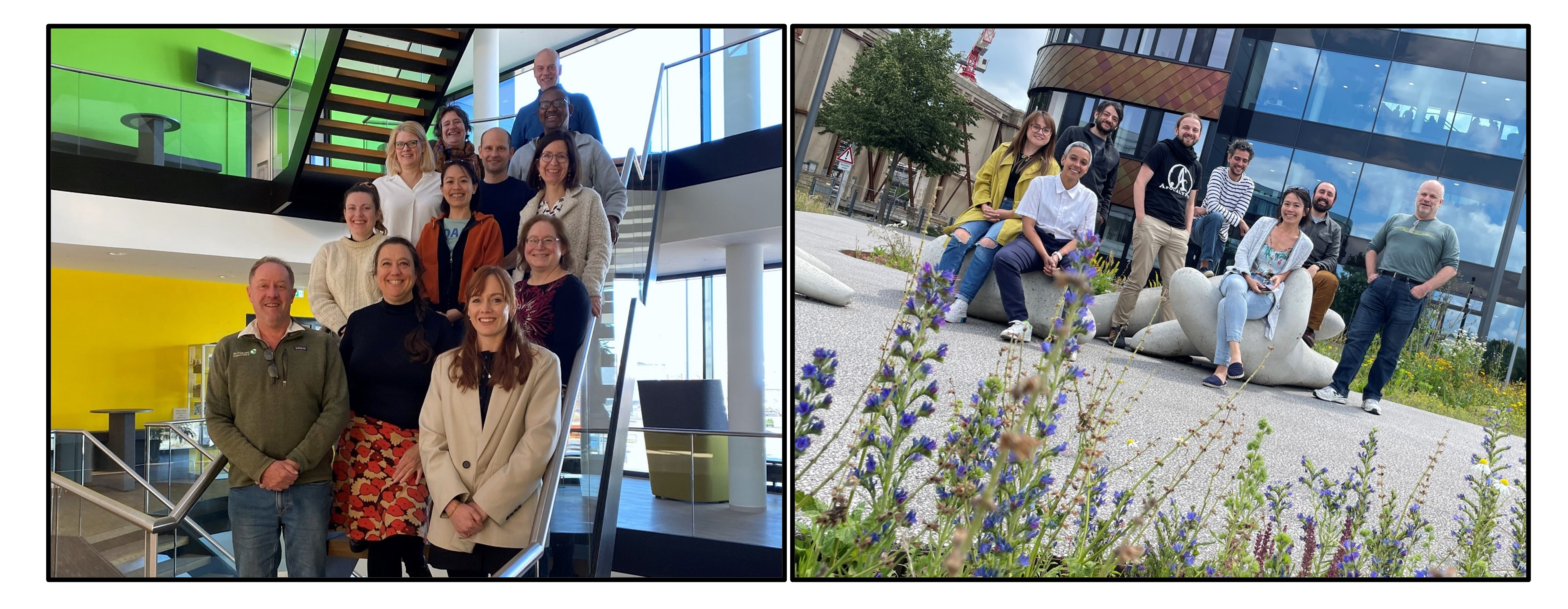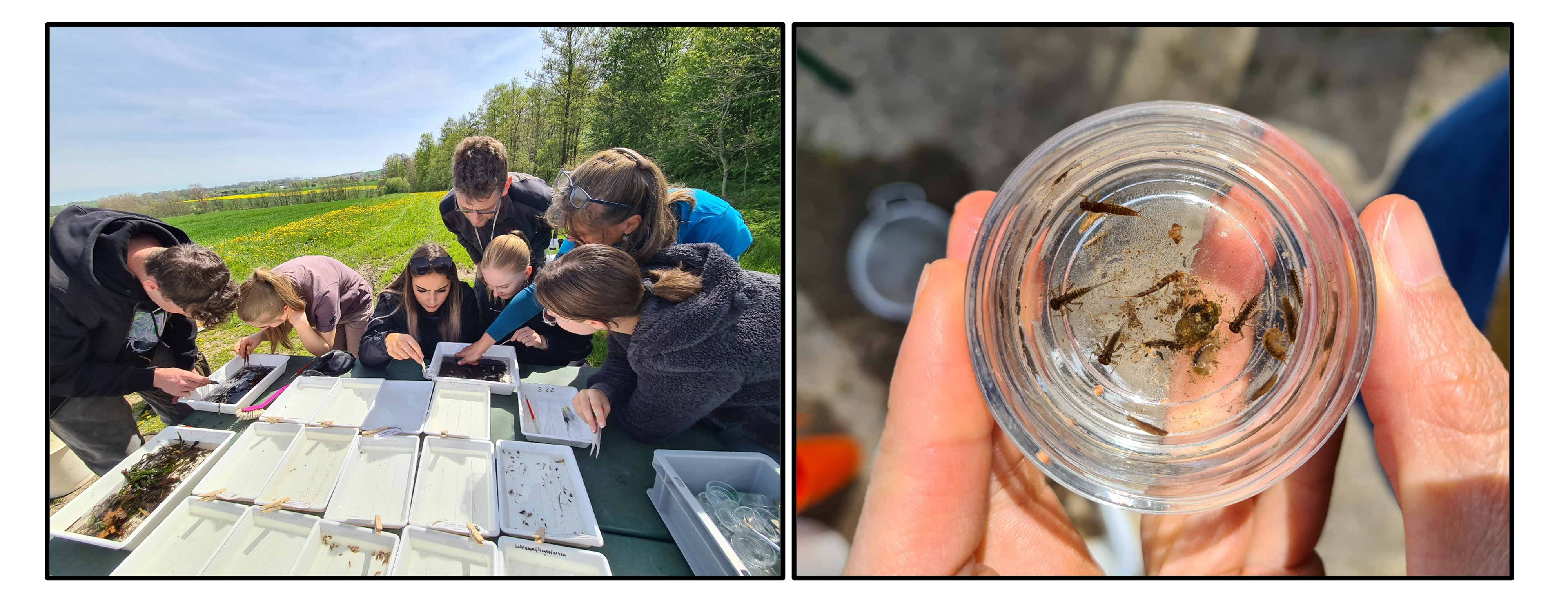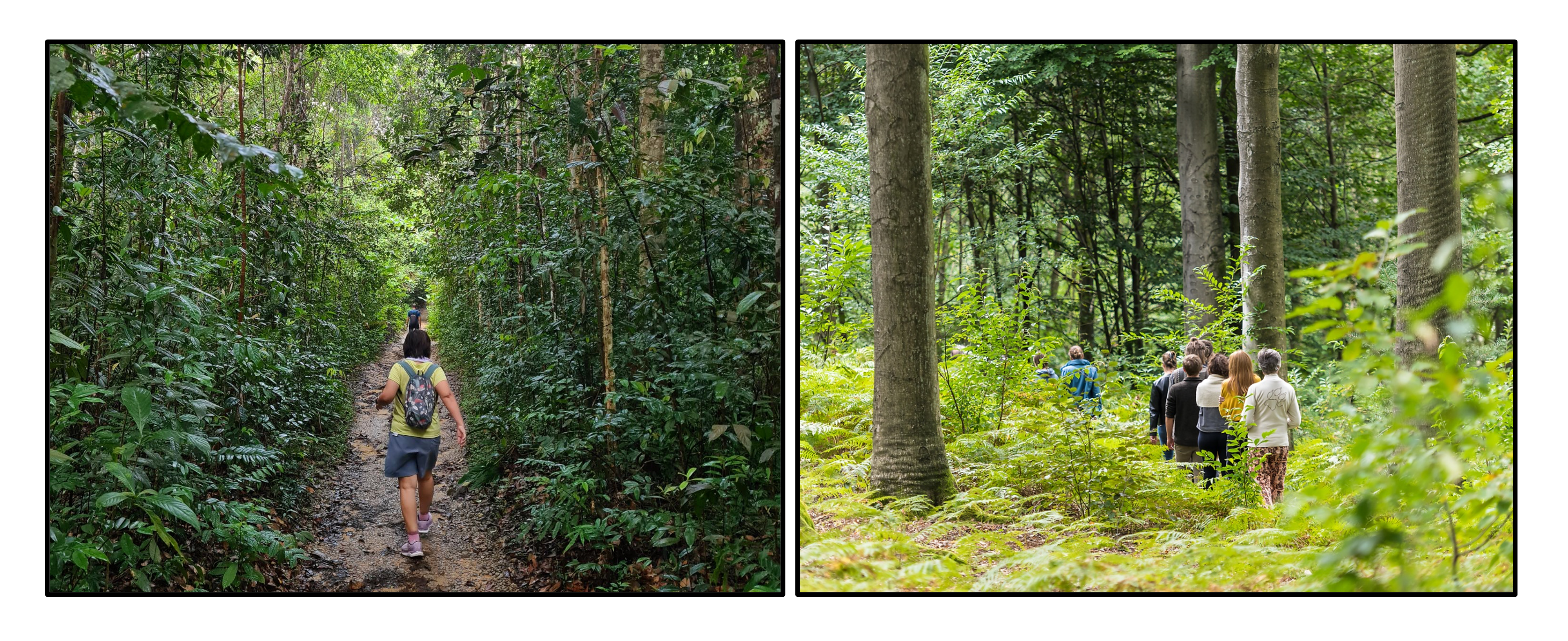We are committed to bridging science and action to conserve nature and advance human health. Our work spans conducting research, co-creation of strategies and policies with practitioners and decision-makers, and efforts to elevate public awareness and shift behaviour.
Grounded in real-world impact, our work is target-oriented, and we draw on a wide range of approaches as needed. Some projects highlighted below showcase this.
Ongoing Projects
One Health: One Health is a holistic approach that connects the health of people, animals, and ecosystems. It recognises that our survival and health depends on the health of wildlife, domestic animals, plants, and the environment. We are building projects that reflect this integrated perspective to identify shared benefits, risks, and trade-offs—working toward equitable and holistic solutions that protect all life.
RECONNECT: How can we reduce our consumption of natural resources and limit harmful production to build a sustainable future? One promising path is to strengthen our connection with nature, such that we see ourselves as part of nature. By fostering this connection, we empower individuals to build resilient relationships with nature, and to take responsible actions that protect and sustain our planet.
sCREATE: Human-wildlife interactions are complex, and if poorly managed, can harm both people and wildlife. Focusing on great apes, we aim to understand how local communities and stakeholders navigate these conflicts, and to develop a practical, adaptable framework to guide future conservation efforts across diverse social-ecological landscapes.
sFRAGMENT: How does landscape fragmentation affects key measures of biodiversity (e.g. species richness and functional diversity), across different regions, time periods and taxonomic groups? By analysing large datasets, we hope to uncover patterns that help us understand and predict biodiversity changes.

DAAD: To design citizen science programs that benefit both nature conservation and human health, we assess how participation impacts nature conservation and human health outcomes across different program types and countries. For example, we are/have working/worked with Adrian Avellaneda and eco-tourist company Rainforest Expedition RFE (Peru), FLOW (Germany) and QTFN (Australia).

LIFE Cohort Studies: We aim to make our living spaces healthier by looking at how things like nature presence and use, air quality, and noise exposure affect the physical and mental health of both kids and adults.
UNP+: The EU Biodiversity Strategy requires all European cities and towns with over 20,000 residents to create an “Urban Nature Plan” that expands biodiverse and accessible urban greenspaces. UNP+ supports these communities in developing and implementing these plans, helping to embed biodiversity, ecosystem services, and natural capital into urban policies, everyday life, and local economies.
Former Projects

UK-DE Going Global Partnership: In partnership with the Volkswagenstiftung, British Council and British Embassy in Germany, we led workshops bringing together researchers, practitioners and policymakers from environmental and public health disciplines to co-design nature-based health promotion strategies that are equitable, locally relevant, and can be emebdded into healthcare systems.
Dr. FOREST: To provide the knowledge needed to integrate ecosystem managament with public health strategies, we assessed how forest biodiversity influence human health outcomes, with focus on microclimates, medicinal plants, disease vectors, and air quality.